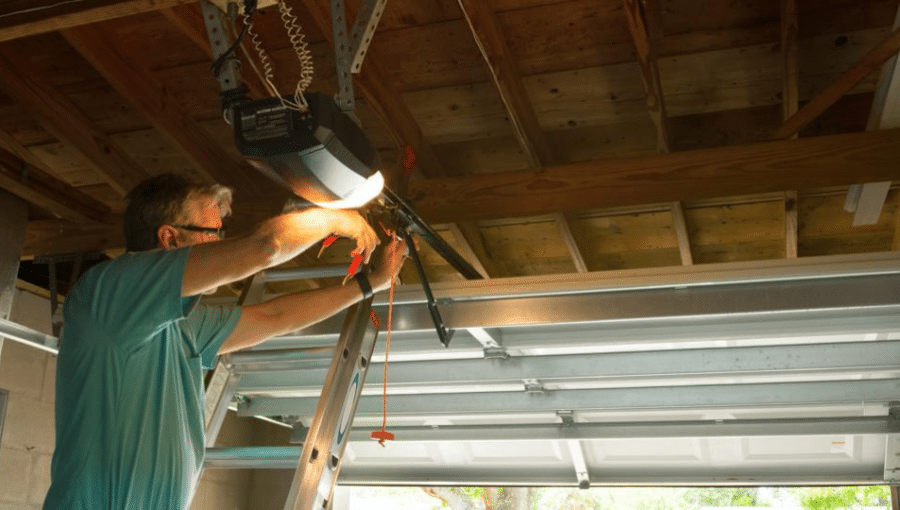Your garage door is exposed to various weather conditions throughout the year, from scorching heat to freezing cold, and everything in between. These weather elements can have a significant impact on the performance and longevity of your garage door. Understanding how weather conditions affect garage doors and implementing preventive measures can help you avoid unnecessary repairs and extend the lifespan of your garage door. In this article, we will explore the effects of different weather conditions on garage doors and provide valuable insights and solutions to protect and maintain your garage door.
Extreme Temperatures
1. Hot Weather
During hot weather, the intense heat can cause your garage door to expand, leading to misalignment, warping, or even sticking. Additionally, the heat can affect the lubrication of the moving parts, causing them to dry out and increase friction. Regular lubrication and shading your garage door from direct sunlight can help minimize these issues.
2. Cold Weather
In cold weather, the metal components of your garage door can contract, causing them to become stiff or frozen. This can lead to difficulties in opening and closing the door. Lubricate the moving parts with a silicone-based lubricant specifically designed for cold temperatures to maintain smooth operation.
Moisture and Humidity
1. Rain and Moisture
Excessive rain or moisture can cause wooden garage doors to swell, warp, or rot. Ensure that the weatherstripping is in good condition and that the garage door is properly sealed to prevent water infiltration. Regularly inspect and treat wooden doors with appropriate sealants or paint to protect them from moisture damage.
2. Humidity
High humidity levels can lead to rust and corrosion on the metal components of your garage door. Regularly inspect and clean metal parts, such as tracks, hinges, and springs, to remove any moisture buildup, ensuring optimal performance for your garage door. Applying a rust-inhibiting spray or lubricant can provide additional protection and contribute to effective garage door repair.

Wind and Storms
1. Strong Winds
Strong winds can exert pressure on your garage door, potentially causing it to bend, crack, or even collapse. Reinforce the structural integrity of your garage door with bracing kits or additional support to withstand high winds. Regular inspections and maintenance can help identify and address any weak points.
2. Storm Damage
Severe storms, including hail or falling debris, can cause significant damage to your garage door. Inspect your garage door after a storm and promptly address any visible damage. If the damage is extensive, consult a professional from CCM Overhead Doors for efficient garage door repair to assess the situation and recommend the best course of action.
Winter Conditions
1. Ice and Snow
Ice and snow buildup can interfere with the proper operation of your garage door. Clear snow and ice from the garage door tracks, sensors, and bottom seal to prevent obstructions and ensure smooth movement. Be cautious when manually opening or closing the door to avoid accidents caused by slippery surfaces.
2. Salt and Deicing Agents
If you use salt or deicing agents near your garage door, be mindful of their corrosive effects on metal components. Regularly clean and rinse the bottom of your garage door to remove any salt or chemical residue.
Conclusion
Weather conditions can significantly impact the performance and durability of your garage door. By understanding how different weather elements affect your garage door and implementing preventive measures, you can protect and prolong its lifespan. Regular maintenance, lubrication, proper sealing, and reinforcing the door’s structure are essential steps in ensuring the optimal functionality of your garage door throughout the year. Trust the experts at CCM Overhead Doors for all your garage door service in Oklahoma, City needs, from installation to maintenance and repairs.









